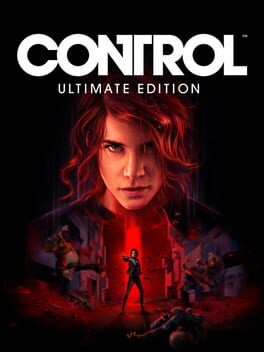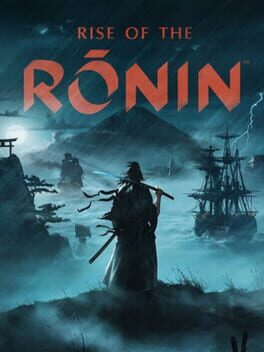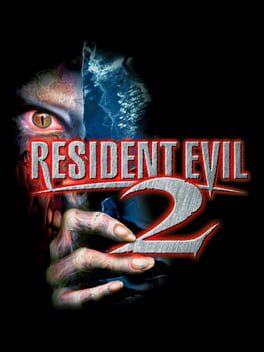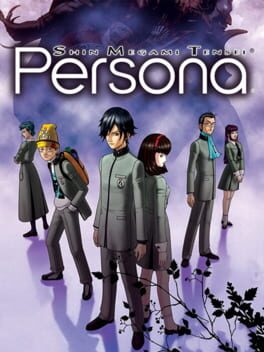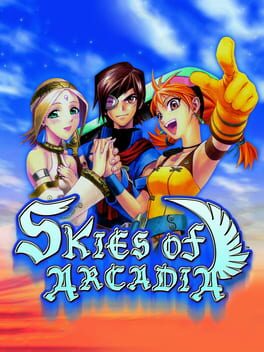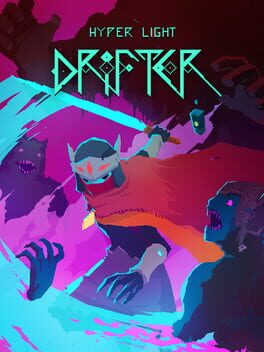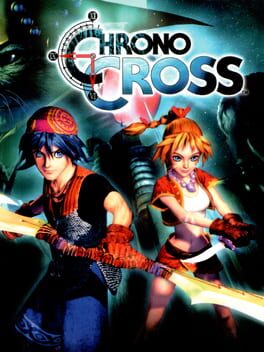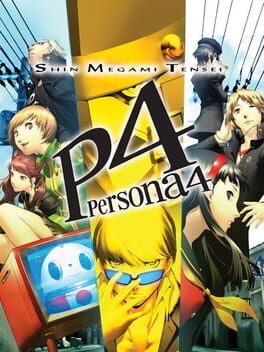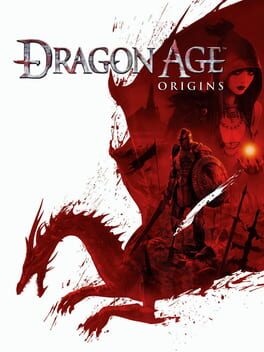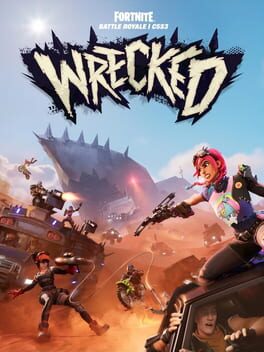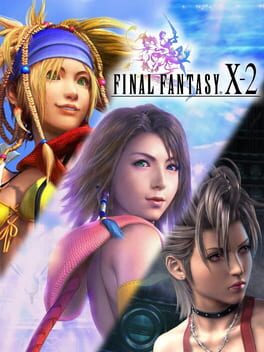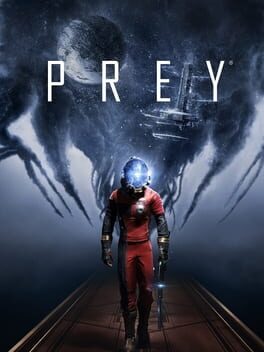sondi
BACKER
390 Reviews liked by sondi
Control is a game I should love. I’ve always been a huge fan of Remedy’s games, starting with Max Payne all these years ago. In my book, Alan Wake is an absolute masterpiece and even though Quantum Break wasn’t really my cup of tea, I still respect the hell out of Remedy for pushing the boundaries of the medium with this game. When I saw trailers and screenshots for Control, I was hyped. This seemed to be exactly my kind of game, being heavily inspired by Twin Peaks, SCP, and X-Files. All this with a Kafkaesque twist that shines through the game’s brutalist world and narrative.
Having finished Control now, I am happy to say that the game pretty much fully convinced me with its writing in all aspects. Control has some of the most delightful characters, Remedy has ever created. Dr. Darling, Emily Pope, and Ahti in particular were among the most interesting, charming and just quirky NPCs I’ve ever come across in a Remedy game, or any game for that matter. The dialogue (or monologue) writing in general is really strong. I felt like each character had a weird and fascinating personality and backstory of their own and I loved coming back to each one of them and indulge in conversation. The same goes for the plot and worldbuilding, another strong suit of Remedy if you ask me. The Oldest House is a fantastic setting for a game, especially one with such a strong focus on mystery and the obscure. This house is a shifting place where time and space are distorted. One minute you walk down a regular office hallway and in the next you’re standing in the middle of a huge quarry that extends into the sky. It shouldn’t and wouldn’t make sense in any other video game, but in Control, the weirdness and absurdity of it all is the very allure of the game. Each section that you visit during your time in the Oldest House is enriched by deep and evocative lore that is presented by audio logs, video tapes, letters or just very intricate environmental storytelling. I loved exploring this place and reading up on the strange events and items that you learn more about as you progress through the story.
Exploration and traversal in Control is fun, not only because the writing keeps you wanting to learn more about this place but also because movement itself is a treat. Running, dashing, and levitating through the various departments of the building never got me bored. Same goes for using telekinesis to smash objects into enemies. That shit never gets old. However, speaking of gameplay, this is where we have to address a wide range of issues I had with the game.
For one, the game just feels so drawn out in places. Fighting wave after wave of enemies, that don’t come in a large variety, can become quite tedious. I felt that even though I used different weapons (or weapon mods) and abilities, most enemies were quite bullet-spongy. You do have a large variety of ways to deal with enemies, which is cool, but sometimes I felt like the game just actively discouraged me from playing the way I enjoyed the most. For instance, I loved using telekinesis to pick up items and just fling them right into the enemies’ faces. But then the game decides that some enemies just dash out of the way. I cannot express how frustrating it felt to pick up three items with telekinesis, which takes a bit of time, aim those items at an enemy and release them only to see that enemy perform a sneaky little step to the side and evade my attack entirely. In the later stages of the game, and especially in the DLC sections, this shit happens all.the.time. and it sucks major balls.
Unfortunately, I cannot say anything more positive in regards to the game’s boss fights. I don’t think that Remedy has ever been particularly good with designing fun bosses but this game definitely takes the cake in terms of frustration and tedium. Now, this is naturally a very subjective assessment but for me, all bosses in Control felt super random. Typically, a fight would go something like this: I enter the boss room, shoot and telekinize my way around the arena and the boss kills me with like two attacks that felt like they came out of nowhere. I try again, this time I am a little more careful, run around, dash around, use my shield ability, take cover and manage to decrease the boss’ health by half. Now, the boss decides to summon some additional enemies, some on the ground and others in the sky. Not only do I have to watch out for the boss’ attacks that kill me in one or two hits, I also have to keep an eye out for grenades flying at me or monsters that come at me kamikaze-style and explode on hit dealing massive damage. Sometimes I got lucky and defeated the boss anyway but mostly I had to rely on a semi-cheese strategy. I would find some spot of relative safety and try to stay out of sight, only occasionally attacking the boss and reducing its health bit by bit. I’m sorry but this was not fun and it never felt rewarding when I succeeded. Again, I felt like the game didn’t need those boss fights. They gave me the impression that their sole purpose was to artificially stretch the game length by making them as frustrating and unfair as possible requiring the player to try again and again. The placement of control points, this game’s checkpoints where you respawn when you die, reinforced that feeling. Having to run to where I died for 2 minutes may be an interesting mechanic in a Souls game, but it’s not in this one.
Stretching the length of the game seems to have been the design philosophy in most side-missions as well. The core game consists of 10 missions that guide you through the Oldest House and are very much focused on progressing the plot and giving depth to the characters. Those missions were good, some even great with the occasional awful boss fight in between. So far so good. However, there is a ton of optional stuff you can do in this game and it all sucks. Again, I’m very sorry to say it so bluntly but it just sucks. Boring ass fetch quests, enemy wave kill quests, confusing cleaning (Yes cleaning!) missions that have you run around like an idiot looking for that last mold bubble on the wall, it’s all so very dull and lifeless. Why is this in this game? It doesn’t need any of this. Honestly, I don’t get why the devs didn’t simply focus on designing a tight 9-10 hours experience instead of bloating the playtime to hit that 20 hour mark for some reason. Now, of course you can ignore most of the side stuff but the rewards you get for completing side missions are really valuable. And I’m sorry but just because something is optional, it doesn’t get a free pass to be absolute dog shit in my book.
It should be clear by now that I have my fair share of criticisms towards Control. I didn’t like most side missions, I hated all of the boss fights and I felt like the entire experience was somewhat bloated. I would still recommend getting this game, especially if you’re a fan of Remedy’s previous work and have a fondness for games with strange and mystical worlds and a strong focus on storytelling and character writing. I played this in preparation to Alan Wake 2 and I don’t regret it. If you ignore most of the optional content and focus on the core game, you will probably have a good time in the Oldest House. For me though, I can’t help but feel a little disappointed by some of the design decisions that Remedy made here. It’s a fun ride, but a sometimes frustrating one.
Having finished Control now, I am happy to say that the game pretty much fully convinced me with its writing in all aspects. Control has some of the most delightful characters, Remedy has ever created. Dr. Darling, Emily Pope, and Ahti in particular were among the most interesting, charming and just quirky NPCs I’ve ever come across in a Remedy game, or any game for that matter. The dialogue (or monologue) writing in general is really strong. I felt like each character had a weird and fascinating personality and backstory of their own and I loved coming back to each one of them and indulge in conversation. The same goes for the plot and worldbuilding, another strong suit of Remedy if you ask me. The Oldest House is a fantastic setting for a game, especially one with such a strong focus on mystery and the obscure. This house is a shifting place where time and space are distorted. One minute you walk down a regular office hallway and in the next you’re standing in the middle of a huge quarry that extends into the sky. It shouldn’t and wouldn’t make sense in any other video game, but in Control, the weirdness and absurdity of it all is the very allure of the game. Each section that you visit during your time in the Oldest House is enriched by deep and evocative lore that is presented by audio logs, video tapes, letters or just very intricate environmental storytelling. I loved exploring this place and reading up on the strange events and items that you learn more about as you progress through the story.
Exploration and traversal in Control is fun, not only because the writing keeps you wanting to learn more about this place but also because movement itself is a treat. Running, dashing, and levitating through the various departments of the building never got me bored. Same goes for using telekinesis to smash objects into enemies. That shit never gets old. However, speaking of gameplay, this is where we have to address a wide range of issues I had with the game.
For one, the game just feels so drawn out in places. Fighting wave after wave of enemies, that don’t come in a large variety, can become quite tedious. I felt that even though I used different weapons (or weapon mods) and abilities, most enemies were quite bullet-spongy. You do have a large variety of ways to deal with enemies, which is cool, but sometimes I felt like the game just actively discouraged me from playing the way I enjoyed the most. For instance, I loved using telekinesis to pick up items and just fling them right into the enemies’ faces. But then the game decides that some enemies just dash out of the way. I cannot express how frustrating it felt to pick up three items with telekinesis, which takes a bit of time, aim those items at an enemy and release them only to see that enemy perform a sneaky little step to the side and evade my attack entirely. In the later stages of the game, and especially in the DLC sections, this shit happens all.the.time. and it sucks major balls.
Unfortunately, I cannot say anything more positive in regards to the game’s boss fights. I don’t think that Remedy has ever been particularly good with designing fun bosses but this game definitely takes the cake in terms of frustration and tedium. Now, this is naturally a very subjective assessment but for me, all bosses in Control felt super random. Typically, a fight would go something like this: I enter the boss room, shoot and telekinize my way around the arena and the boss kills me with like two attacks that felt like they came out of nowhere. I try again, this time I am a little more careful, run around, dash around, use my shield ability, take cover and manage to decrease the boss’ health by half. Now, the boss decides to summon some additional enemies, some on the ground and others in the sky. Not only do I have to watch out for the boss’ attacks that kill me in one or two hits, I also have to keep an eye out for grenades flying at me or monsters that come at me kamikaze-style and explode on hit dealing massive damage. Sometimes I got lucky and defeated the boss anyway but mostly I had to rely on a semi-cheese strategy. I would find some spot of relative safety and try to stay out of sight, only occasionally attacking the boss and reducing its health bit by bit. I’m sorry but this was not fun and it never felt rewarding when I succeeded. Again, I felt like the game didn’t need those boss fights. They gave me the impression that their sole purpose was to artificially stretch the game length by making them as frustrating and unfair as possible requiring the player to try again and again. The placement of control points, this game’s checkpoints where you respawn when you die, reinforced that feeling. Having to run to where I died for 2 minutes may be an interesting mechanic in a Souls game, but it’s not in this one.
Stretching the length of the game seems to have been the design philosophy in most side-missions as well. The core game consists of 10 missions that guide you through the Oldest House and are very much focused on progressing the plot and giving depth to the characters. Those missions were good, some even great with the occasional awful boss fight in between. So far so good. However, there is a ton of optional stuff you can do in this game and it all sucks. Again, I’m very sorry to say it so bluntly but it just sucks. Boring ass fetch quests, enemy wave kill quests, confusing cleaning (Yes cleaning!) missions that have you run around like an idiot looking for that last mold bubble on the wall, it’s all so very dull and lifeless. Why is this in this game? It doesn’t need any of this. Honestly, I don’t get why the devs didn’t simply focus on designing a tight 9-10 hours experience instead of bloating the playtime to hit that 20 hour mark for some reason. Now, of course you can ignore most of the side stuff but the rewards you get for completing side missions are really valuable. And I’m sorry but just because something is optional, it doesn’t get a free pass to be absolute dog shit in my book.
It should be clear by now that I have my fair share of criticisms towards Control. I didn’t like most side missions, I hated all of the boss fights and I felt like the entire experience was somewhat bloated. I would still recommend getting this game, especially if you’re a fan of Remedy’s previous work and have a fondness for games with strange and mystical worlds and a strong focus on storytelling and character writing. I played this in preparation to Alan Wake 2 and I don’t regret it. If you ignore most of the optional content and focus on the core game, you will probably have a good time in the Oldest House. For me though, I can’t help but feel a little disappointed by some of the design decisions that Remedy made here. It’s a fun ride, but a sometimes frustrating one.
Rise of the Ronin
2024
Rise of the Ronin is Team Ninja's first open world title and while it turns out to be a very fun game, you can REALLY tell it's their first.
Being set in Japan's Bakumatsu period, Ronin puts you at the center of many conflicts, wars, and political turmoil that defined the era. The game attempts to take full advantage of its setting through the introduction of a large cast of historical figures and a system that allows you to form bonds with quite a few of them. I was fond of Ronin's Bond system particularly due to the character-specific bond missions which provide more characterization to important characters and in some cases lead to their own little storylines. The rate at which new characters are introduced does make it a little hard to remember a lot of the cast and their role within the story (the in-game encyclopedia is a lifesaver). Even then, this is still probably one of the most comprehensible narratives Team Ninja has ever told.
Ronin's biggest strong point is without a doubt its gameplay. There are a lot of weapon types to choose from each comprised of their own styles, stances, and skills that allow you a great deal of variety when it comes to choosing your playstyle. The combat was fast and challenging enough to the point where I never really got bored by it. Pulling off consecutive parries until the enemy gets stunned long enough to pull off an execution just feels really satisfying. I had concerns regarding the enemy variety since 99.9% of them are humans, unlike in Team Ninja's previous game, Wo Long which had you fighting monsters on top of them. The enemy variety comes mainly from the styles they use, with more unorthodox weapons coming into play occasionally during boss fights. I didn't feel like my brain was actively turning into mush every time I fought the same group of enemies, unlike in Wo Long, so clearly it did something right.
Now, let's talk about the open world. It's split into three separate maps that are packed to the brim with icons indicating activities, collectibles, and missions. These activities include clearing bandit outposts, taking pictures, petting cats, glider training, etc. I completed almost everything on the first map, but when the second map arrived and filled the map with even more of these activities, I hit the "honk mimimi" and put most of my focus on completing the actual story missions. A lot of the open-world activities just felt mind-numbing and I didn't see much incentive in doing them. While the open world is capable of looking beautiful visually, its graphics still feel outdated and that becomes even more apparent the moment you enter one of the main cities. All of this comes together to make it the weakest part of the game, but like I said before, this is Team Ninja's first open world and I do hold the belief that they will do significantly better if they ever decide to tackle this format again.
Since this game is currently a PS5 exclusive, I do want to point out how surprisingly well it uses the dualsense. The haptic feedback allows you to feel everything from swords clashing to the steps your horse makes while you're riding it, which was especially useful as it made traversing the open world slightly less boring.
Overall, I really did enjoy Rise of the Ronin, but I just cannot recommend buying it for its asking price of $70. Catch this on a sale if you can.
Being set in Japan's Bakumatsu period, Ronin puts you at the center of many conflicts, wars, and political turmoil that defined the era. The game attempts to take full advantage of its setting through the introduction of a large cast of historical figures and a system that allows you to form bonds with quite a few of them. I was fond of Ronin's Bond system particularly due to the character-specific bond missions which provide more characterization to important characters and in some cases lead to their own little storylines. The rate at which new characters are introduced does make it a little hard to remember a lot of the cast and their role within the story (the in-game encyclopedia is a lifesaver). Even then, this is still probably one of the most comprehensible narratives Team Ninja has ever told.
Ronin's biggest strong point is without a doubt its gameplay. There are a lot of weapon types to choose from each comprised of their own styles, stances, and skills that allow you a great deal of variety when it comes to choosing your playstyle. The combat was fast and challenging enough to the point where I never really got bored by it. Pulling off consecutive parries until the enemy gets stunned long enough to pull off an execution just feels really satisfying. I had concerns regarding the enemy variety since 99.9% of them are humans, unlike in Team Ninja's previous game, Wo Long which had you fighting monsters on top of them. The enemy variety comes mainly from the styles they use, with more unorthodox weapons coming into play occasionally during boss fights. I didn't feel like my brain was actively turning into mush every time I fought the same group of enemies, unlike in Wo Long, so clearly it did something right.
Now, let's talk about the open world. It's split into three separate maps that are packed to the brim with icons indicating activities, collectibles, and missions. These activities include clearing bandit outposts, taking pictures, petting cats, glider training, etc. I completed almost everything on the first map, but when the second map arrived and filled the map with even more of these activities, I hit the "honk mimimi" and put most of my focus on completing the actual story missions. A lot of the open-world activities just felt mind-numbing and I didn't see much incentive in doing them. While the open world is capable of looking beautiful visually, its graphics still feel outdated and that becomes even more apparent the moment you enter one of the main cities. All of this comes together to make it the weakest part of the game, but like I said before, this is Team Ninja's first open world and I do hold the belief that they will do significantly better if they ever decide to tackle this format again.
Since this game is currently a PS5 exclusive, I do want to point out how surprisingly well it uses the dualsense. The haptic feedback allows you to feel everything from swords clashing to the steps your horse makes while you're riding it, which was especially useful as it made traversing the open world slightly less boring.
Overall, I really did enjoy Rise of the Ronin, but I just cannot recommend buying it for its asking price of $70. Catch this on a sale if you can.
Resident Evil 2
1998
Wow, what a video game! I love the remake, like it's on my very exclusive top games of all-time list (a list where even 5/5 games don't necessarily make the cut). I did not think this game could possibly hold up. I was very, very wrong. This game is amazing. There were times where I would think, "Oh, they setup a jump scare here" and it would still jump scare me. That's impressive.
After 10 hours, I simply cannot physically continue with this game.
Persona 1 might be the worst game I have ever played in terms of gameplay. It's just unbearable. The battle system is tedious, but I can get over it. What I can't forgive is the dungeon crawling. It's just bad. Downright horrendous. As much as I want to continue this game, I simply can't. The game is great in other aspects, though. The plot and characters are great. Shoutout to my girl Maki! And as usual, Shoji Meguro delivered a god tier soundtrack.
It really sucks that the amazing artistic side of this game is brought down by how horrendous the technical side of it is. It makes me really sad to drop this game, because I want to play all of the Persona games, but I just can't go on with this. I hope to come back to this eventually, but I'm not sure.
Persona 1 might be the worst game I have ever played in terms of gameplay. It's just unbearable. The battle system is tedious, but I can get over it. What I can't forgive is the dungeon crawling. It's just bad. Downright horrendous. As much as I want to continue this game, I simply can't. The game is great in other aspects, though. The plot and characters are great. Shoutout to my girl Maki! And as usual, Shoji Meguro delivered a god tier soundtrack.
It really sucks that the amazing artistic side of this game is brought down by how horrendous the technical side of it is. It makes me really sad to drop this game, because I want to play all of the Persona games, but I just can't go on with this. I hope to come back to this eventually, but I'm not sure.
Skies of Arcadia
2000
As far as graphics, animations and cutscenes go, Overworks upped the ante with Skies of Arcadia, a steampunk JRPG with turn-based systems for both land and flight battles. Half of the appeal - however, lies in its unusual place in history (thanks mainly to its platform, caught between 5th-gen values and the budding 6th generation), allowing a glimpse into future standards enabled by advancing tech. If they weren't the first (Quest 64 and Panzer Dragoon Saga are potential sources), they could still receive credit for bridging that era with the modern third-person style of JRPG (which gradually replaced the overhead/static camera of its past), an approach that also downplayed vague progression (the old method to pad out playthroughs) in favor of lengthy jogs down pathways. This turned out to be important in setting a new (dubious) template for the next generation. Winding and distinctive towns clash with its massive, airship-navigated void and some of the least imaginative dungeons ever, but a greater case of mixed results is found in their systems & mechanics. On one hand, its arena combat - that feels like a 3D mix of Chrono Trigger (reliance on AoE skills) and Star Ocean (movement half-determined by targeting) minus the ATB flow, at least features a party-wide SP gauge for both magic and supers (with bosses that lead to careful meter management and planning), whereas their dogfights utilize the same tools in a slower, more linear format. On the other hand, its spell-learning (by way of elemental weapon augments) recreates FFVI's espers via FFVII's materia, while the rest (collectibles, Suikoden-esque recruitment, world map secrets, optional bosses, etc.) amounts to a checklist of filler.
But above all else, it's the presentation that triumphs: The prevailing sense of scale, the vibrant animations, the cinematic nuances, the stunning landscapes (or more appropriately - skyscapes), and the expressive character models embody the state-of-the-art of its genre & times, if only in visuals. And as it proceeds, the journey is enriched by the chemistry and moving speeches of its party members, whose relentless optimism harks back to the original spirit of console-RPGs. For better and for worse, this work represents a further step in production quality previously set by the likes of Xenogears, Chrono Cross, Final Fantasy IX and The Legend of Dragoon.
But above all else, it's the presentation that triumphs: The prevailing sense of scale, the vibrant animations, the cinematic nuances, the stunning landscapes (or more appropriately - skyscapes), and the expressive character models embody the state-of-the-art of its genre & times, if only in visuals. And as it proceeds, the journey is enriched by the chemistry and moving speeches of its party members, whose relentless optimism harks back to the original spirit of console-RPGs. For better and for worse, this work represents a further step in production quality previously set by the likes of Xenogears, Chrono Cross, Final Fantasy IX and The Legend of Dragoon.
Hyper Light Drifter
2016
This is an undeniably gorgeous game where every scene is dripping in detail, backed by a fitting and somber soundtrack. The world is built uniquely through picture based dialogue instead of text which only aids the aesthetic. The gameplay itself is where the game is a bit more rote. I did enjoy it and found it to be solid, but it felt like something was lacking. By the end of the game, the combat was feeling fairly repetitive, especially because the underground areas all start to blend together regardless of the outside areas' unique backdrops. It's definitely a good game, but greatness feels just out of its grasp.
Chrono Cross
1999
The idea of making a sequel to Chrono Trigger seems like a fool's errand, but surprisingly enough, the direction of Chrono Cross as a sequel is magnificent. They could have bitten off Trigger and made a budget-heavy, digestible sequel, but they didn’t. When sequels are made, creators can look back and improve upon their past mistakes. So looking at Trigger, what is there to change? There’s nothing inherently wrong with it, so how can it be improved in a sequel? This is why I respect the vision of Chrono Cross so much as a game and especially as a sequel. It doesn’t do the same thing better, but it rethinks the genre entirely.
Cross introduces so many quality-of-life gaming mechanics that have gone widely unused in the genre outside of its release period, and that is a shame. Gaming has instead leaned into battering you with where you need to be next with a marker indicating where to go, ensuring you’ll never be questioning what to do next. That’s the difference with Chrono Cross. Modern gaming is the equivalent of that one teacher in elementary school who was a little too nice and gave you the answers on your test when they shouldn’t have. Chrono Cross is instead like a well-trained tutor that gives you the tools you need to succeed but doesn’t flat-out give you the answers and makes you figure it out on your own.
One of the features added that signifies this game's new direction is the ability to run away from boss battles with a 100 percent success rate. If you’re not equipped with magic suited for the fight, used the wrong spell, were about to die, or just didn’t like the way the fight played out, you’re welcome to run away from any fight you want with no penalty. Most games will let you retry a fight after death with no repercussions now, but you’ve got to remember, this was 1999! It doesn’t want you to lose hours of progress from something you couldn’t see coming and instead gives you all the attempts you need to figure out how to beat bosses.
The gimmick of Chrono Cross's combat is equipable moves. They act as an item of sorts, and you can find them in dungeons or in shops. You need to balance out buffs, consumables, attack magic, and the like in the limited slots available. What makes this weird, though, is that once you use one of these moves, you’re not able to use it again for the duration of the battle, so what you have equipped always matters. That also means that all your magic will be recharged for the next battle. I love this, to put it bluntly. There’s no anxiety about saving all your MP for a boss battle; instead, you’re just expected to have fun and use what you have without repercussion.
It just makes Cross have this easy-going and well-balanced experience. You’re not required to constantly re-equip yourself in towns or stop at inns. You just kind of, well, play the game. I’m making the game sound like it's way too easy, but no. It has a great difficulty curve, which I’ve come to expect from Square. The way it maintains the difficulty throughout the game, though, is through its fixed leveling. After defeating bosses in the story, sometimes you’ll unlock growth levels. These basically allow you to level up your stats from completing battles up until a certain point and lock off stat gains until you get more growth levels. In other words, Chrono Cross found a plausible solution to creating a grind-free RPG, and it works great. FF8 tried to get rid of grinding too, but it was flawed in its fundamentals by implying that you draw a surplus of moves from enemies, which is a different facet of grinding. It also punished the player for grinding by having dynamic leveling that made enemies harder as you leveled up, which is quite evil for the blind player. It feels like they took into account the flaws of FF8 and reworked them to be less obtuse and more user-friendly.
One of my favorite parts of Cross is its Suikoden-esque gameplay. Cross is, I guess, in the niche sub-genre of character-collecting RPGs. There’s 45 playable characters to get in the game, and instead of heading back to the castle to swap out party members in Suikoden, you can just swap them out whenever you want on the overworld. It was surprising to find a QOL I wanted in Suikoden lying in Chrono Cross this entire time. Obviously, not all these characters are good; many get much more screen time than others. Many stick out, though, my favorite being Karsh, as I loved his character arc. My favorite part about them is all of their connecting backgrounds. Instead of our traditional band of 7 or so party members, Cross focuses on building the world on a broader scale with a large number of characters to choose from, with many being interconnected in some way or another.
Square’s golden era was during the PS1, and Chrono Cross is a finite example of that. It showcases Square’s innovation and their ability to be effectively experimental, but unfortunately, it didn’t have the impact it rightfully deserved. Much of Cross's game design went unnoticed in the grand scheme of things, as it has many features that I think could have become the norm for RPGs but just didn’t catch on as well as something like FF7. I’ll close by saying that Chrono Cross is one of the best sequels of all time and should serve as an example of what makes a great one. It takes place in a brand new setting and has completely reformed gameplay. Everything is different, almost unrecognizable at first, but the way it intertwines itself into the series is superb.
Cross introduces so many quality-of-life gaming mechanics that have gone widely unused in the genre outside of its release period, and that is a shame. Gaming has instead leaned into battering you with where you need to be next with a marker indicating where to go, ensuring you’ll never be questioning what to do next. That’s the difference with Chrono Cross. Modern gaming is the equivalent of that one teacher in elementary school who was a little too nice and gave you the answers on your test when they shouldn’t have. Chrono Cross is instead like a well-trained tutor that gives you the tools you need to succeed but doesn’t flat-out give you the answers and makes you figure it out on your own.
One of the features added that signifies this game's new direction is the ability to run away from boss battles with a 100 percent success rate. If you’re not equipped with magic suited for the fight, used the wrong spell, were about to die, or just didn’t like the way the fight played out, you’re welcome to run away from any fight you want with no penalty. Most games will let you retry a fight after death with no repercussions now, but you’ve got to remember, this was 1999! It doesn’t want you to lose hours of progress from something you couldn’t see coming and instead gives you all the attempts you need to figure out how to beat bosses.
The gimmick of Chrono Cross's combat is equipable moves. They act as an item of sorts, and you can find them in dungeons or in shops. You need to balance out buffs, consumables, attack magic, and the like in the limited slots available. What makes this weird, though, is that once you use one of these moves, you’re not able to use it again for the duration of the battle, so what you have equipped always matters. That also means that all your magic will be recharged for the next battle. I love this, to put it bluntly. There’s no anxiety about saving all your MP for a boss battle; instead, you’re just expected to have fun and use what you have without repercussion.
It just makes Cross have this easy-going and well-balanced experience. You’re not required to constantly re-equip yourself in towns or stop at inns. You just kind of, well, play the game. I’m making the game sound like it's way too easy, but no. It has a great difficulty curve, which I’ve come to expect from Square. The way it maintains the difficulty throughout the game, though, is through its fixed leveling. After defeating bosses in the story, sometimes you’ll unlock growth levels. These basically allow you to level up your stats from completing battles up until a certain point and lock off stat gains until you get more growth levels. In other words, Chrono Cross found a plausible solution to creating a grind-free RPG, and it works great. FF8 tried to get rid of grinding too, but it was flawed in its fundamentals by implying that you draw a surplus of moves from enemies, which is a different facet of grinding. It also punished the player for grinding by having dynamic leveling that made enemies harder as you leveled up, which is quite evil for the blind player. It feels like they took into account the flaws of FF8 and reworked them to be less obtuse and more user-friendly.
One of my favorite parts of Cross is its Suikoden-esque gameplay. Cross is, I guess, in the niche sub-genre of character-collecting RPGs. There’s 45 playable characters to get in the game, and instead of heading back to the castle to swap out party members in Suikoden, you can just swap them out whenever you want on the overworld. It was surprising to find a QOL I wanted in Suikoden lying in Chrono Cross this entire time. Obviously, not all these characters are good; many get much more screen time than others. Many stick out, though, my favorite being Karsh, as I loved his character arc. My favorite part about them is all of their connecting backgrounds. Instead of our traditional band of 7 or so party members, Cross focuses on building the world on a broader scale with a large number of characters to choose from, with many being interconnected in some way or another.
Square’s golden era was during the PS1, and Chrono Cross is a finite example of that. It showcases Square’s innovation and their ability to be effectively experimental, but unfortunately, it didn’t have the impact it rightfully deserved. Much of Cross's game design went unnoticed in the grand scheme of things, as it has many features that I think could have become the norm for RPGs but just didn’t catch on as well as something like FF7. I’ll close by saying that Chrono Cross is one of the best sequels of all time and should serve as an example of what makes a great one. It takes place in a brand new setting and has completely reformed gameplay. Everything is different, almost unrecognizable at first, but the way it intertwines itself into the series is superb.
Persona 4
2008
Dragon Age: Origins
2009
A very rare example where I started off Origins being very unsure about it and then progressively enjoyed it more and more until I pretty much loved it by the end.
It was a tough hang at first. Origins doesn't look great even by 2009 standards, and if you're not expecting MMO-style combat it can all feel a little awkward at first. But the combat grew on me (I played elf mage) as I went along and got more powers, and I clicked with the gameplay overall once I realized Bioware was going for a heavily streamlined Baldur's Gate-style RPG. And to that, they did an excellent job.
The writing was also top notch -- as good as the best Mass Effect stuff -- and despite there not being a ton of environments or what have you Bioware made it feel like you were going on a grand adventure to unite the nations and combat a larger, frightening threat. Although I think the final combat encounters were somewhat annoying, the narrative in the back third is thrilling.
So glad I played this. Going to play the Awakening DLC next, then DA2, then Inquisition!
It was a tough hang at first. Origins doesn't look great even by 2009 standards, and if you're not expecting MMO-style combat it can all feel a little awkward at first. But the combat grew on me (I played elf mage) as I went along and got more powers, and I clicked with the gameplay overall once I realized Bioware was going for a heavily streamlined Baldur's Gate-style RPG. And to that, they did an excellent job.
The writing was also top notch -- as good as the best Mass Effect stuff -- and despite there not being a ton of environments or what have you Bioware made it feel like you were going on a grand adventure to unite the nations and combat a larger, frightening threat. Although I think the final combat encounters were somewhat annoying, the narrative in the back third is thrilling.
So glad I played this. Going to play the Awakening DLC next, then DA2, then Inquisition!
Hi-Fi Rush
2023
To me, it's a sign of a really good game in this genre when immediately after finishing, I feel the urge to start another run through. Hi-Fi Rush shows this sign. For a casual "just beat all the levels on normal" playthrough, the rhythm mechanic is cool, and generally not that obtrusive once you adapt to it. In later areas (and, from my limited experience with them, at higher difficulty levels), it becomes an incredibly useful tool for timing your defensive maneuvers, so you feel like some kind of genius with the parry just because you know how to spam it to the beat of the song (though, as it should, this strategy comes with drawbacks). Probably more importantly than all that, it just makes things a lot more fun! Sections that might otherwise feel like they have unremarkable music or very basic navigation become self-imposed playgrounds to hone your rhythm so you've got it down once a fight comes up, and correctly timed inputs actually matter.
Enemy variety could be better, but with the length of the game, it's not that much of a problem. The way enemy groups are mixed together in any given encounter ends up mattering more, and at later levels, they seem to mix up their moves a little bit as well; more enemies might make it more difficult to recognize their weaknesses or attack tells.
The amount of post-game content on offer also feels like such a bonus. I've always got to respect when developers add a sort of roguelite-ish mode based around the vanilla gameplay of their game, so shoutouts to Tango for that one; fantastic idea. It really seems like there's a lot to challenge players who breeze through the Normal difficulty main story, without making players who can't quite get the hang of higher-level play feel like they're missing out.
My biggest complaints feel like they could just be skill issues. Certain attacks feel like they're hard to recognize the tells for. Some enemies that require specific moves to be vulnerable consequently take a long time to kill. I'm sure if I put more time into the game, or specced my character the right way, these issues might just disappear.
All in all, pretty fantastic game. And I hear Tango Gameworks wants to make a sequel! I'm sure it'll be even better. I'm going to post this review and then look up what all those developers are doing now. I hope they all got a raise or something! EDIT: oh no
Enemy variety could be better, but with the length of the game, it's not that much of a problem. The way enemy groups are mixed together in any given encounter ends up mattering more, and at later levels, they seem to mix up their moves a little bit as well; more enemies might make it more difficult to recognize their weaknesses or attack tells.
The amount of post-game content on offer also feels like such a bonus. I've always got to respect when developers add a sort of roguelite-ish mode based around the vanilla gameplay of their game, so shoutouts to Tango for that one; fantastic idea. It really seems like there's a lot to challenge players who breeze through the Normal difficulty main story, without making players who can't quite get the hang of higher-level play feel like they're missing out.
My biggest complaints feel like they could just be skill issues. Certain attacks feel like they're hard to recognize the tells for. Some enemies that require specific moves to be vulnerable consequently take a long time to kill. I'm sure if I put more time into the game, or specced my character the right way, these issues might just disappear.
All in all, pretty fantastic game. And I hear Tango Gameworks wants to make a sequel! I'm sure it'll be even better. I'm going to post this review and then look up what all those developers are doing now. I hope they all got a raise or something! EDIT: oh no
Portal
2007
So back when reviewing Aperture Desk Job for the steamdeck some people were surprised it was the first Valve game I had played. The thing is that I stopped PC gaming in the mid 90's and have always been a console gamer either through finances or where friends played but getting a steamdeck and joining steam's eco system really opened my eyes quite a bit. I even bought a gaming PC and have been venturing into it steadily. I still love my consoles and retro gaming but having more avenues to experience titles in different ways is never a bad thing.
With that in mind and the Aperture Desk Job link to Portal I figured I should finally play this well know piece of gaming history I have a blank on. Now I'm not really a puzzle gamer. I dabble in a few here and there but it's just not really to my tastes as I get impatient if that is all I am doing. Portal feels like it has a great balance of puzzles being both overly simple and challenging at the same time. I never felt I was breezing through but rarely felt stuck, at the minimum I could see what I needed to do even if occasionally pulling it off wasn't so easy.
Portal's gameplay is in it's very name. You create portals using a gun whilst going through test areas in the Aperture Science Enrichment Centre. Each area has different puzzles and sometimes multiple rooms to figure out to get to the elevator to the next area. It's a linear game and though your mechanics are limited to creating two portals that link and picking up boxes it's impressive how far Valve manages to inspire you to use them in different ways. Creating paths for energy balls to power up doors, getting into seemingly locked off rooms and my favourite, using multiple portals to get the velocity to launch yourself, or as GLaDOS your Aperture computer guide states:
"speedy thing goes in, speedy thing comes out"
Now if the game was just the puzzles I'd be a little luke warm about it being just kind of ok but the writing and voice acting do a lot of heavy lifting to pull Portal up to something more I feel. The only real voiced character is GLaDOS but her sarcasm, dry tone and implications as the game progresses are really witty and entertaining. Without her this would be a decent puzzle game but with her it's a great overall experience.
Glad I finally played it and have been dabbling with some of the extras like the advanced maps and challenges. The game is pretty short which to me is not a negative here. It's a game that knows not to wear out it's welcome while keeping things entertaining and I look forward to playing it's much lauded sequel sometime in the future.
Recommended.
+ Puzzles are balanced well.
+ GLaDOS is often hilarious and keeps the game from getting stale as you progress.
+ Just the right length.
With that in mind and the Aperture Desk Job link to Portal I figured I should finally play this well know piece of gaming history I have a blank on. Now I'm not really a puzzle gamer. I dabble in a few here and there but it's just not really to my tastes as I get impatient if that is all I am doing. Portal feels like it has a great balance of puzzles being both overly simple and challenging at the same time. I never felt I was breezing through but rarely felt stuck, at the minimum I could see what I needed to do even if occasionally pulling it off wasn't so easy.
Portal's gameplay is in it's very name. You create portals using a gun whilst going through test areas in the Aperture Science Enrichment Centre. Each area has different puzzles and sometimes multiple rooms to figure out to get to the elevator to the next area. It's a linear game and though your mechanics are limited to creating two portals that link and picking up boxes it's impressive how far Valve manages to inspire you to use them in different ways. Creating paths for energy balls to power up doors, getting into seemingly locked off rooms and my favourite, using multiple portals to get the velocity to launch yourself, or as GLaDOS your Aperture computer guide states:
"speedy thing goes in, speedy thing comes out"
Now if the game was just the puzzles I'd be a little luke warm about it being just kind of ok but the writing and voice acting do a lot of heavy lifting to pull Portal up to something more I feel. The only real voiced character is GLaDOS but her sarcasm, dry tone and implications as the game progresses are really witty and entertaining. Without her this would be a decent puzzle game but with her it's a great overall experience.
Glad I finally played it and have been dabbling with some of the extras like the advanced maps and challenges. The game is pretty short which to me is not a negative here. It's a game that knows not to wear out it's welcome while keeping things entertaining and I look forward to playing it's much lauded sequel sometime in the future.
Recommended.
+ Puzzles are balanced well.
+ GLaDOS is often hilarious and keeps the game from getting stale as you progress.
+ Just the right length.
Final Fantasy X-2
2003
The most pointless game ever made in terms of narrative and reason for existence. I get they made it because 10 sold well, but this butchers an otherwise great story by continuing what should not have been continued. The job system or whatever quirky bullshit name they decided to call it was not what people hyped it up to be, though I probably would have ended up liking it a lot more if the story wasn't written as a death letter to one of my favorite endings. Honestly this is comparable to the answer from persona 3 fes because they both completely miss the point of their original games stories and are made to be cheap cash grabs to entice dumb asses like me into playing more slop. I would go as far to say that this game is final fantasy's persona 3 the answer
Prey
2017
We may never get another gaming year like 2017. Looking back, the sheer amount of absolute banger titles released that year just seems unfathomable to me. Among others, some of my personal favorites released in 2017 were NieR Automata, Persona 5, Dragon Quest XI, Divinity Original Sin 2, Breath of the Wild, and so so many more. With that many top tier games released in such a relatively short time, it is only natural that some titles didn't get the recognition they undoubtedly deserved. I feel like that was the case with Prey, the second to last game developed by Arkane Austin, a studio known for its strong focus on immersive sim games. I remember following the overall gaming discourse back in 2017 quite rigorously and while I do remember some outlets speaking about Prey and praising its qualities in terms of worldbuilding, storytelling and freedom of choice, I do feel like this game flew under the radar a bit. That’s probably why I wasn’t super hyped to play this game when it released. Like with so many other games, I just put Prey on my wishlist, let it rest there for a while and finally decided to buy it on sale years later. And still, I wouldn’t play it. For years and years, this game was sitting in my library, becoming one of those titles, I would surely pick up at some point in the future. That’s a shame because, having finished it now, I think I was sleeping on one of the, if not the, best immersive sim games ever created. The push to finally give this game a try came upon reading the news that Microsoft had decided to close down Arkane Austin for good. I remembered that, before the (Red)fall of this company, they had worked on games I was interested in but never found the time to play. So, the time had finally come. I sat down and started playing Prey.
And what a journey it was.
I’m gonna keep this review short. For me, this is one of those games, people should experience with as little prior knowledge as possible. That’s how I approached the game and I’m happy I did. Prey is an immersive sim in all the best ways. This genre, if it can be called that, is all about player freedom. A good immersive sim presents an intriguing premise for the story and world of the game, puts the player into a semi open world, and lets them approach a number of objectives in multiple ways. It’s a formula that was first established by the Ultima and Thief games and has since then been revised and advanced by games like Deus Ex and Dishonored. Having played Prey now, I think this formula has come to a sort of perfect conclusion with this game.
From the first seconds of the game, Prey knows exactly what it’s doing. As you’ve probably guessed by looking at screenshots or trailers for the game, Prey is a Sci-Fi story that plays with you as much as you play it. There’s an all-encompassing feeling of “wrongness” in everything you see, like something just doesn’t really add up. Playing Prey feels like playing a mind game. The first couple of minutes make it very clear that this is intended by the developers. You’re supposed to question what you see. And so, you’ll end up asking yourself if what you see is real or just an illusion, a mimic of reality. But Prey is more than that. It deals with questions of humanity, identity, technological progress and morality. Only on its front is it a Sci-Fi story with a cosmic horror twist. Prey is a deeply human story that is not afraid to question the cost of technological advancement, touching on topics like the value of human life in a world dictated by corporate greed and the never-ending hunt for profit, no matter the cost. That’s a premise that immediately hooked me. I wanted to know more about this version of our world, where John F. Kennedy survived his assassination attempt, launching the world into a new era of space exploration. I had so many questions in my head that needed answering. What’s the point of Talos I? What’s a Neuromod? What happened on this station and who are we anyway? Step by step, the game will have answers for you, some of which will be hard and unforgiving truths whereas other will pose even more questions. And sometimes, there’s no right and wrong and it’s up to you to decide how to interpret the “truth”.
Freedom and choice, that’s what it’s all about in an immersive sim. Not only is that reflected in Prey’s narrative, it’s also a significant aspect of its gameplay. Every challenge the game offers can be approached in different ways. Again, I’m not going to go into detail what options you have at your disposal to deal with challenging situations as I want everyone interested in this game to find their own solutions. Let me just tell you that to me, Prey felt like a playground (or a Preyground….sorry^^) that managed to tickle my sense of creativity. Sometimes, I would just go crazy with the most outrageous strategies to deal with enemies and it just…worked. And if it didn’t, I at least had a laugh and learned something for my next fight. But it’s not just about the combat. Player choice is at the forefront of everything you do in this game. How do you get into that room? How will you deal with that environmental trap? How can you get to that precious piece of equipment that seems out of reach from this point? It’s all up to you and each time you come up with a solution, it feels right. The game doesn’t punish you for finding creative solutions to problems, it encourages you. In every moment of the game, I felt like I was truly in control of deciding how to play my character. The choices I made were truly mine. Prey let me choose who I wanted to be in this world. I could be a reckless killer, not minding any questions of morality and just going around like an absolute mad man. It also gave me the option to be empathetic, to be kind and honest and to go out of my way to help others. In this regard, it reminded me of Deus Ex and Bioshock in the best ways possible.
Prey is a masterpiece. It’s absolutely unthinkable to me how the people, who worked on a game like this, are out of a job now. As immersive sims go, this is as good as it gets. Prey takes clear inspiration from games like System Shock when it comes to story, presentation, and gameplay. It revises and improves the core ideas found in those games and offers and experience that is just next level. There’s a clear line of continuous improvement that Arkane went trough coming from games like Arx Fatalis and Dishonored and it’s an absolute shame that we will never know what their next immersive sim game would have looked like. There’s still hope that Arkane Lyon and Wolfeye Studios will continue to scratch that itch that these games leave. In any case, please play this game if you are at all interested in games like these. Prey is certainly not perfect. There are sections that include heavy backtracking, some enemy respawns felt unnecessary and the ending came rather abrupt. Still, Prey is the culmination of decades of perfecting the immersive sim formula and should be experienced by any fan of the genre.
And what a journey it was.
I’m gonna keep this review short. For me, this is one of those games, people should experience with as little prior knowledge as possible. That’s how I approached the game and I’m happy I did. Prey is an immersive sim in all the best ways. This genre, if it can be called that, is all about player freedom. A good immersive sim presents an intriguing premise for the story and world of the game, puts the player into a semi open world, and lets them approach a number of objectives in multiple ways. It’s a formula that was first established by the Ultima and Thief games and has since then been revised and advanced by games like Deus Ex and Dishonored. Having played Prey now, I think this formula has come to a sort of perfect conclusion with this game.
From the first seconds of the game, Prey knows exactly what it’s doing. As you’ve probably guessed by looking at screenshots or trailers for the game, Prey is a Sci-Fi story that plays with you as much as you play it. There’s an all-encompassing feeling of “wrongness” in everything you see, like something just doesn’t really add up. Playing Prey feels like playing a mind game. The first couple of minutes make it very clear that this is intended by the developers. You’re supposed to question what you see. And so, you’ll end up asking yourself if what you see is real or just an illusion, a mimic of reality. But Prey is more than that. It deals with questions of humanity, identity, technological progress and morality. Only on its front is it a Sci-Fi story with a cosmic horror twist. Prey is a deeply human story that is not afraid to question the cost of technological advancement, touching on topics like the value of human life in a world dictated by corporate greed and the never-ending hunt for profit, no matter the cost. That’s a premise that immediately hooked me. I wanted to know more about this version of our world, where John F. Kennedy survived his assassination attempt, launching the world into a new era of space exploration. I had so many questions in my head that needed answering. What’s the point of Talos I? What’s a Neuromod? What happened on this station and who are we anyway? Step by step, the game will have answers for you, some of which will be hard and unforgiving truths whereas other will pose even more questions. And sometimes, there’s no right and wrong and it’s up to you to decide how to interpret the “truth”.
Freedom and choice, that’s what it’s all about in an immersive sim. Not only is that reflected in Prey’s narrative, it’s also a significant aspect of its gameplay. Every challenge the game offers can be approached in different ways. Again, I’m not going to go into detail what options you have at your disposal to deal with challenging situations as I want everyone interested in this game to find their own solutions. Let me just tell you that to me, Prey felt like a playground (or a Preyground….sorry^^) that managed to tickle my sense of creativity. Sometimes, I would just go crazy with the most outrageous strategies to deal with enemies and it just…worked. And if it didn’t, I at least had a laugh and learned something for my next fight. But it’s not just about the combat. Player choice is at the forefront of everything you do in this game. How do you get into that room? How will you deal with that environmental trap? How can you get to that precious piece of equipment that seems out of reach from this point? It’s all up to you and each time you come up with a solution, it feels right. The game doesn’t punish you for finding creative solutions to problems, it encourages you. In every moment of the game, I felt like I was truly in control of deciding how to play my character. The choices I made were truly mine. Prey let me choose who I wanted to be in this world. I could be a reckless killer, not minding any questions of morality and just going around like an absolute mad man. It also gave me the option to be empathetic, to be kind and honest and to go out of my way to help others. In this regard, it reminded me of Deus Ex and Bioshock in the best ways possible.
Prey is a masterpiece. It’s absolutely unthinkable to me how the people, who worked on a game like this, are out of a job now. As immersive sims go, this is as good as it gets. Prey takes clear inspiration from games like System Shock when it comes to story, presentation, and gameplay. It revises and improves the core ideas found in those games and offers and experience that is just next level. There’s a clear line of continuous improvement that Arkane went trough coming from games like Arx Fatalis and Dishonored and it’s an absolute shame that we will never know what their next immersive sim game would have looked like. There’s still hope that Arkane Lyon and Wolfeye Studios will continue to scratch that itch that these games leave. In any case, please play this game if you are at all interested in games like these. Prey is certainly not perfect. There are sections that include heavy backtracking, some enemy respawns felt unnecessary and the ending came rather abrupt. Still, Prey is the culmination of decades of perfecting the immersive sim formula and should be experienced by any fan of the genre.
